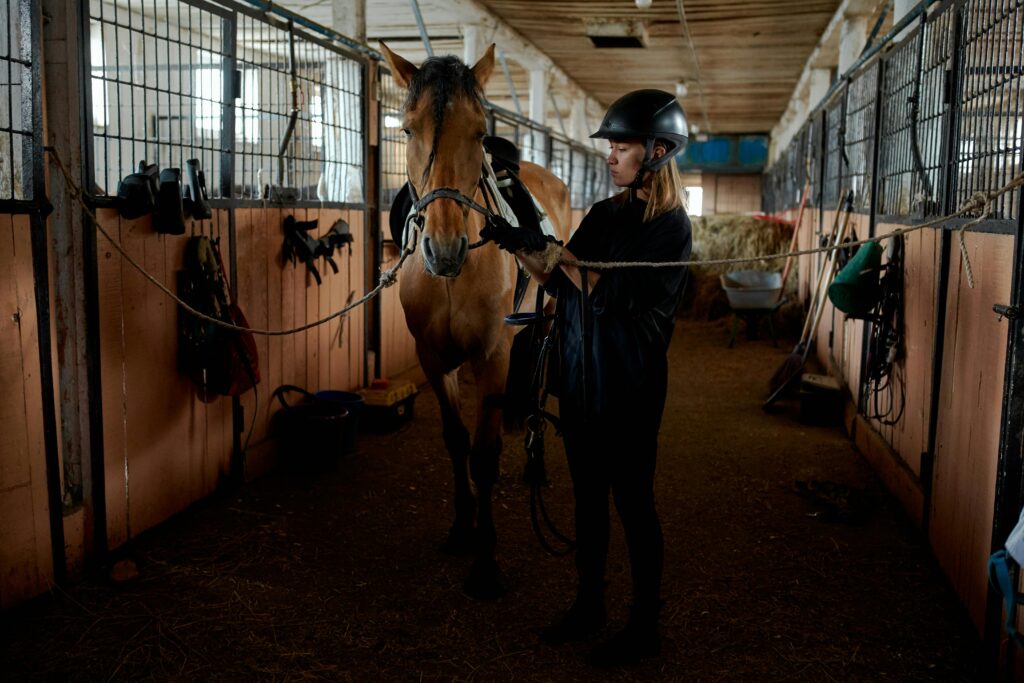
The Importance of Rodent Control in Horse Stables
Introduction
Horse stables provide an inviting environment for rodents such as rats and mice. These pests bring more than minor inconveniences—they can contaminate feed, spread diseases, and cause structural damage. Taking proactive measures for rodent control in stables is essential to maintain a safe and healthy stable for your horses and staff.
Why Rodents Are Drawn to Horse Stables
Rodents are naturally attracted to stables for several reasons, including:
- Abundant Food Sources: Stored feed, grain, and hay provide rodents with an endless supply of nourishment. Even small spills can attract them.
- Shelter and Warmth: The enclosed structure of stables offers protection from predators and cold weather, making it an ideal refuge.
- Nesting Materials: Hay, straw, and other materials commonly stored in stables are perfect for building rodent nests.
- Accessibility: Gaps in walls, floors, and open doors make it easy for rodents to sneak into stables undetected.
Risks Rodents Pose to Stables
Rodents aren’t just a nuisance—they can have a severe impact on stable operations and animal welfare.
- Feed Contamination: Rodents can contaminate feed with droppings and urine, introducing harmful bacteria and diseases that could harm your horses.
- Spread of Disease: Diseases like leptospirosis, salmonella, and hantavirus are often carried by rodents and can spread to both humans and animals.
- Damage to Structures and Equipment: Rodents are notorious chewers, damaging wood, wiring, and pipes, which can lead to costly repairs and potential hazards.
- Stress for Horses: The presence of rodents can frighten horses, causing unnecessary stress and behavioural issues.
Recognising Rodent Activity: Key Signs to Watch
Early detection of rodent infestations is vital. Here’s what to look for:
- Droppings: Small, dark pellets near feed or corners.
- Gnaw Marks: Evidence of chewing on wood, cables, or equipment.
- Tracks or Smudges: Footprints and greasy marks along walls.
- Nests: Shredded materials hidden in quiet areas.
- Noises: Scratching, squeaking, or movement sounds, often at night.
- Odours: A musky smell from rodent urine or droppings.
The Crucial Role of Rodent Control in Stables
Effective rodent control is more than a convenience—it’s essential for:
- Disease Prevention: Protecting horses, staff, and visitors from harmful pathogens.
- Feed Protection: Ensuring stored food remains safe and uncontaminated.
- Structural Integrity: Avoiding costly repairs caused by gnawing or nesting.
- Horse Welfare: Providing a stress-free, hygienic environment for your animals.
- Cost Savings: Reducing expenses associated with repairs, replacements, and medical treatments.
Top Tips for Keeping Stables Rodent-Free
Preventive measures can go a long way in reducing rodent activity:
- Secure Feed Storage: Use metal or heavy-duty plastic containers with tight-fitting lids to protect feed.
- Block Entry Points: Inspect and seal cracks, holes, or gaps using durable materials such as steel mesh or concrete.
- Keep the Area Clean: Regularly clean stalls, feed rooms, and storage areas to remove crumbs and odours that attract rodents.
- Proper Waste Management: Dispose of waste and bedding in secure containers far from the stable.
- Manage Vegetation: Trim grass and bushes around the stable to eliminate hiding spots.
- Use Natural Deterrents: Rodents dislike peppermint or clove oil; soak cotton balls and place them near entry points.
When to Call in the Professionals
If rodents persist despite your efforts, professional pest control is the next step.
Shire Pest Solutions Can Help
At Shire Pest Solutions, we specialise in protecting stables from rodent infestations. Our expert team uses humane and effective methods to:
- Eradicate existing rodent problems.
- Prevent future infestations.
- Minimise disruptions to your stable operations.
For tailored rodent control solutions, visit Shire Pest Solutions – Rodent Control.
Conclusion
Rodents in stables can lead to contamination, disease, and costly damage. Recognising the risks and taking preventive action is vital to protect your horses and maintain a safe environment.
If infestations occur, don’t hesitate to call Shire Pest Solutions for effective and reliable rodent control. Safeguard your stables today for a healthier tomorrow!
